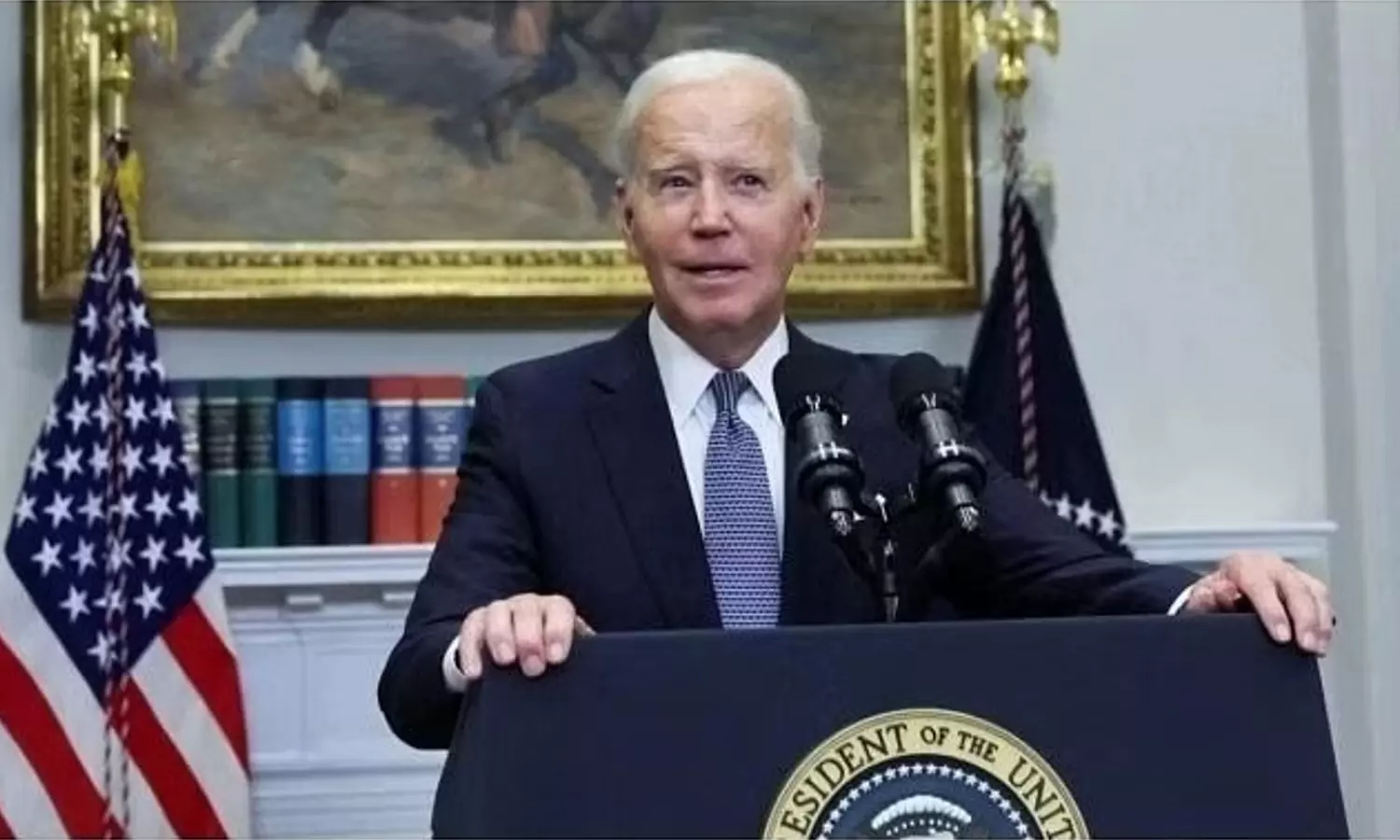
WASHINGTON: US President Joe Biden is going to take a decision that he thinks is in the best interest of the United States, the White House has said, after China warned of "resolute measures" if the Tibet policy bill is signed into law.
The US Congress passed this month a legislation, the Resolve Tibet Act, calling for a peaceful resolution of the dispute over the status and governance of Tibet. It also calls on Beijing to resume dialogue with the Tibetan spiritual leader the Dalai Lama.
"The President is going to do what he thinks is best on behalf of the American people, that's what I can tell you," White House Press Secretary Karine Jean-Pierre told reporters at her daily news conference on Tuesday when asked about China's warning.
The Resolve Tibet Act is a bipartisan bill to enhance US support for Tibet and promote dialogue between the People's Republic of China and the Dalai Lama toward a peaceful resolution of the long-standing dispute between Tibet and China.
The Act enhances US support for Tibet – empowering State Department officials to actively and directly counter disinformation about Tibet from the Chinese government, reject false claims that Tibet has been part of China since "ancient times", push for negotiations without preconditions between the Chinese government and the Dalai Lama or his representatives or the democratically elected leaders of the Tibetan community, and affirm the State Department's responsibility to coordinate with other governments in multilateral efforts toward the goal of a negotiated agreement on Tibet.
China is opposed to the Act and has asked Biden not to sign it.
"Anyone or any force who attempts to destabilise Xizang to contain or suppress China will not succeed," Chinese foreign ministry spokesman Lin Jian told reporters in Beijing on Tuesday. "The US should not sign the bill. China will take resolute measures to defend its sovereignty, security and development interests," he said.
China officially refers to Tibet as Xizang.
China in April this year said it would talk only with the representatives of the Dalai Lama and not the officials of the Tibetan government in exile based in India.
At the same time, China ruled out dialogue on the Dalai Lama’s long-pending demand for autonomy for his remote Himalayan homeland.
In its talks with China between 2002 and 2010, the Tibetan side pitched genuine autonomy for the Tibetan people in line with the middle-way policy as proposed by the Dalai Lama.
The Tibetan spiritual leader has said he does not seek political independence for Tibet but seeks autonomy for all Tibetan areas which include Gansu, Qinghai, Sichuan and Yunnan provinces besides the current official Tibet Autonomous Region, a truncated version of Tibet before it was annexed by China.
After a failed anti-Chinese uprising in 1959, the 14th Dalai Lama fled Tibet and came to India where he set up the government-in-exile.
Relations between the two sides strained further due to protests against China in Tibetan areas in 2008.


